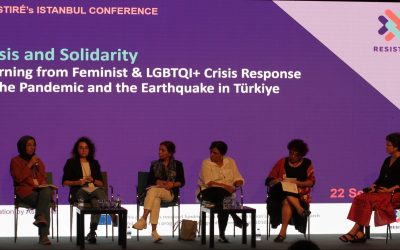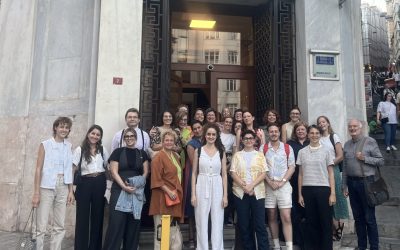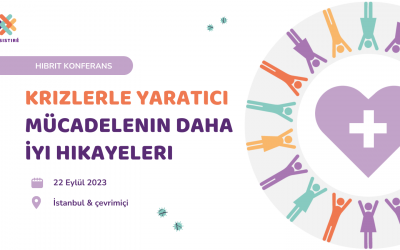The aim of RESISTIRÉ is to understand the unequal impacts of the COVID-19 outbreak and its policy responses on behavioural, social and economic inequalities in 31 countries (EU 27 plus Iceland, UK, Serbia and Turkey) and to work towards individual and societal resilience. Inequalities are explored through analysing existing policies, collecting data through existing surveys, and through the topic of this report: conducting interviews.
This cycle of qualitative research on inequalities produced by COVID-19 and its policy responses was led by project partners Sofia Strid (scientific coordinator/team leader), Tobias K. Axelsson, Lina Sandström (national researchers) and Anne-Charlott Callerstig (team member) from Örebro University. The findings were then fed into the first set of Open Studios, where inequality experts co-designed adequate responses and operational tools from a holistic perspective.
For this report, all RESISTIRÉ partners collected qualitative data on the impacts of COVID-19 on inequalities through workshops and interviews with inequality experts, and narrative interviews with individual people living throughout Europe. All in all, qualitative data from nearly 300 individuals were collected and analysed to produce insights on the behavioural, economic, social, and environmental impacts of COVID-19, which can then be used to inform future COVID-19 policy responses.
Finding #1: A care crisis
The pandemic is a care crisis: it has widened the gender care gap by accentuating the stereotypical gendered distribution of care work. Women have unproportionally worked while maintaining basic life sustaining functions such as health care, childcare, elderly care, or caring for people with disabilities.
Societal organisation of care is central for women to be able to earn a living. Possible ways forward for a gender+ equal distribution of care include public funding for affordable and accessible care for all.
Finding #2: A failure to protect the most vulnerable
Pandemic policy making has been characterised by a ’survival of the fittest’- mentality and failed to protect the most vulnerable groups. This is particularly evident in the economy and the work and labour market domains, since policies have been implicitly designed to protect foremost the ‘insiders’, i.e., those who already had secure working positions, higher levels of education, and higher income.
Systems and institutions, in times of crisis, stick to existing norms. Some of the most affected target groups include women with care responsibilities, migrant women, domestic workers, elderly people with low pensions, and in particular groups who lack access or capacity to use digital tools.
Finding #3: A ‘war mentality’
During the pandemic, there has been an emphasis on rapid decision-making by homogeneous teams and privileged individuals, while inclusive decision-making has been treated as less adequate given the exceptional circumstances.
To avoid additional cycles of increasing inequalities, the way forward must include gender mainstreaming in policy responses (including both gender-proofing and gender-budgeting) and consider the intersections of multiple inequalities in both policy- and decision making (not just in equality strategies).
Finding #4: A gender trigger
Social norms define what we see as appropriate and affect our behaviour. They can play a bigger role in situations that have a high degree of structural ambiguity, i.e., when there is no strong guidance, implicit or explicit on how to be or act. The pandemic can be seen as a ‘gender trigger’; it created a new and untested situation with uncertainty and very little guidance, increasing the risk of falling back on stereotypical traditional gender patterns. This has been observed in various domains, in particular gender-based violence which was directly affected by measures such as lockdown.
Finding #5: A crisis of trust
The pandemic is a crisis of trust. The mistrust and lack of confidence in society’s institutions pose a threat to the individuals’ opportunities to exercise their rights and to society’s ability to deal with pandemics, such as ensuring compliance with advice and guidelines and high vaccination rates. However, the narratives also include experiences of and wishes for greater solidarity between people, since isolation and fear can unite people.
Finding #6: Inequalities across countries and domains
The resilience of the gender equality system (actors, organisations, and institutional mechanisms working to promote gender equality) during the COVID-19 pandemic has been uneven across countries and policy domains. The results highlight a lack of gender equality perspective in pandemic policy making, such as a lack of gender and intersectional analysis, and a lack of sufficient inequality data. The results show that most often an inclusive and representative decision-making was not practiced.
Concluding observations
The overall findings of this first cycle of qualitative research describe a complex picture, where women remain significantly disadvantaged across all domains and where there is a downward spiral of increasing inequalities; being already vulnerable, marginalised or disadvantaged, makes you disproportionally more vulnerable, disadvantaged and marginalised.
These findings suggest an interrelation between domains and intersections between inequalities and therefore demonstrate the need for policies and societal responses to be gender mainstreamed as well as intersectional, taking into account existing evidence on how specific groups will be affected by policy initiatives and then monitoring outcomes on the basis of factors such as gender. The approach needs to be intersectional.



